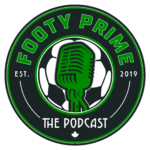
The Only Canadians Who Have A Problem With The Intention Of Canada’s New Online Harms Bill Are Pedos, Porn-Hub And #MapleMAGA Conservatives

Canada unveiled a MUCH NEEDED Online Harms bill this week. It’s a big one.
The Bill’s overview is simple: Canadians who objectify kids, spread hate, violence, or lies that produce hate-fueled violence are on the clock.
Bill C-63 isn’t perfect. Trudeau needs to remove the criminal code shit from the hate speech triggers (leave it to Trudeau to put words on par with first-degree murder). Still, online safety experts around the world are ECSTATIC with how it addresses online harms for kids and speech that leads to violent outcomes or straight-up lies that lead to reputational or societal chaos.
Including FB whistleblower Frances Haugen:
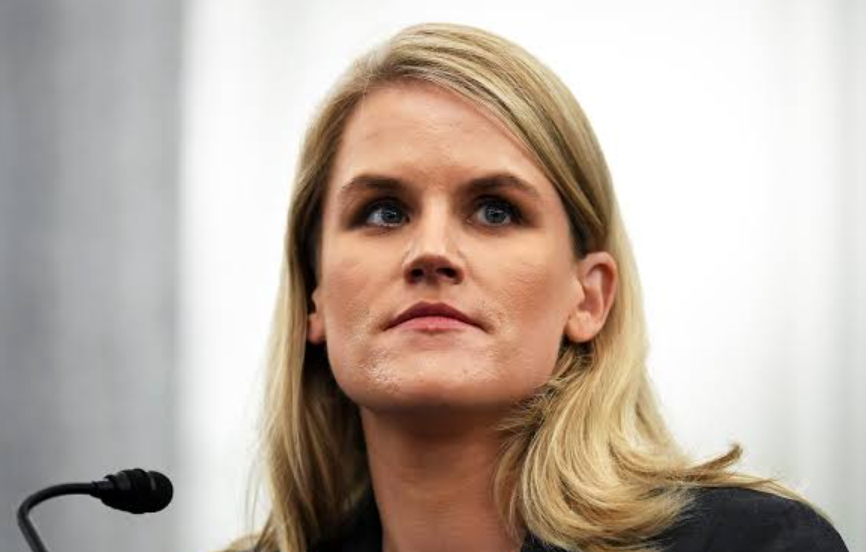
Source: Frances Haugen, a former Facebook employee who blew the whistle on the tech company by accusing it of prioritizing profit over public safety, says Canada’s new online harms legislation isn’t just good, it’s “one of the best bills that has been proposed today.”
In an interview with CTV News Channel’s Power Play host Vassy Kapelos on Tuesday, Haugen said the new bill is a meaningful step toward holding tech companies accountable for neglecting user well-being, especially among children and teens.
“We know the platforms know this is a problem, but different platforms are taking different levels of effort to deal with this,” Haugen told Kapelos. “And that’s why we need laws like the Canadian online safety bill, to make sure Canadian researchers can ask questions (like) is the platform your kid is spending time on doing everything they can to keep that kid safe?”
Prime Minister Justin Trudeau’s government on Monday tabled its long-awaited legislation with the aim of better protecting Canadians, and particularly youth, against online harms.
In addition to targeting harmful content shared by users – such as intimate images shared without consent and anything used to bully or sexually victimize a child – the bill introduces new responsibilities for online platforms, as well as a regulatory framework for enforcing those responsibilities.
“It’s less a bill that says, ‘You must take down every last dangerous thing,'” Haugen said. “It’s a bill that says, ‘If you know there are risks, you have to tell us, you can’t lie about it, and you need to tell us what your plan is for mitigating those risks, and you need to give us enough information that we know you’re making progress.'”
Haugen took a job as a data engineer at Facebook in 2019, saying she hoped to generate positive change from within the company.
In 2021, she released documents to the Wall Street Journal that exposed how much Facebook knew about the harms it was causing and how it chose not to take measures to protect users from those harms. That same year, she testified to a U.S. Senate panel about how Facebook’s products harm children, stoke division, and weaken democracy, saying the company’s leadership knew how to make the platforms safer but refused to make the necessary changes because “they have put their immense profits before people.”
One of the rules introduced by Canada’s new online harms bill is broadly defined as the “duty to act responsibly.” It puts the onus on companies to reduce exposure to harmful content by “continuously” assessing risks, developing mitigation strategies and giving users better tools for flagging harmful content.
The bill would also require platforms to be more transparent about measures they’re taking to protect users from harmful content and to share data with researchers. In order to enforce new rules for social media companies, the bill would lead to the creation of a new “digital safety commission” comprised of five members appointed by cabinet.
This commission would have the power to order the removal within 24 hours of certain types of non-consensual and exploitative content. Cabinet would also appoint a new “independent” ombudsperson to advocate on behalf of users.
Haugen said the bill takes a “sensible, moderate” approach to internet safety that is less about policing the internet than carving out legal rights for the public.
She worked for #Facebook – knows where the metaphorical bodies are buried – has no pecuniary reason to praise #Trudeau government's bill. None. She sees the online harms bill as the gold standard for preventing children from being poisoned by social media. https://t.co/5IANvXBium
— Charles Adler (@charlesadler) February 28, 2024
Digital Professor Michael Geist likes the Bill, too. He broke down his surprise here with a caveat around criminal code penalties around digital crimes…he’s right. He’s always right. The dumbest part of this bill is attaching lengthy prison stays for nasty tweets.
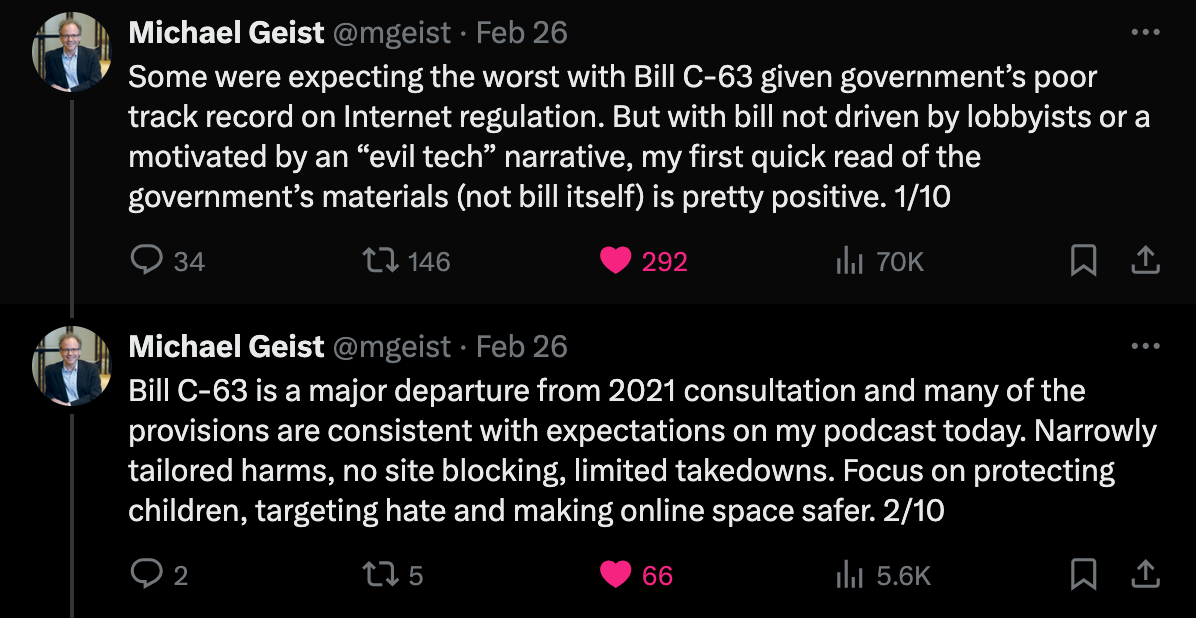
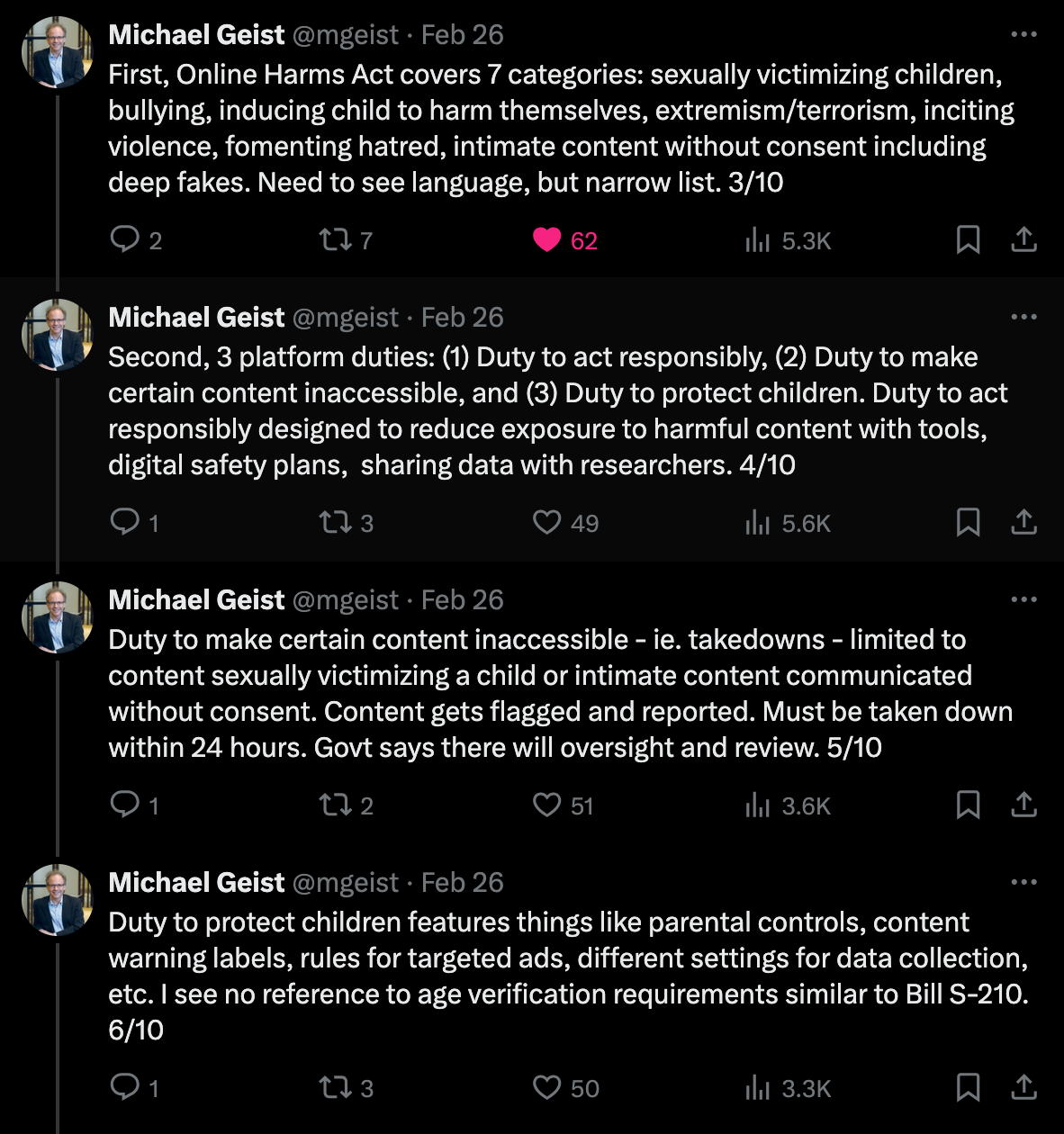
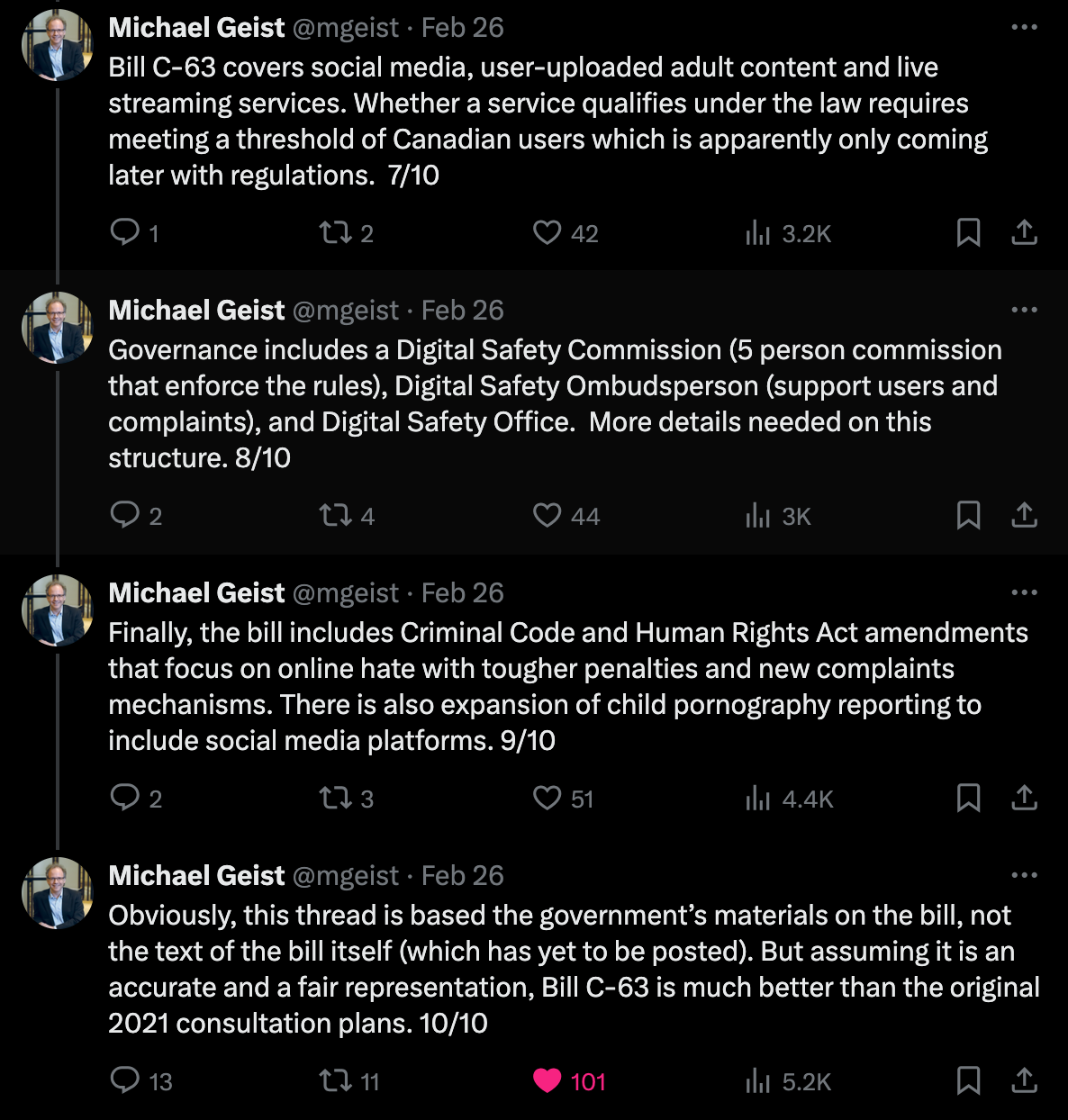
“DUTIES and RESPONSIBILITIES”
Two big words and minimal context of what online content the Online Harms Committee deems “responsible.” In truth, I don’t have any faith in any government to provide respectful guidelines as to what content is or isn’t responsible according to any government’s subjective method. Parties with different values run governments, which can change with an election. Or a whim, so I expect “harm” to be on a weird sliding scale. The responsibility of any regulatory body is to be bipartisan and apply regulation in the consumer’s best interest. It’s impossible to regulate online content according to 40 million individual sets of values, so as Dr. Geist says, the Criminal code shit tied to Duties and responsibilities needs to be removed or moved up to give kiddie porn activists a life sentence, or the electric chair.
You can rehabilitate people who craft hateful tweets. People who hurt children can’t be rehabilitated and deserve the chair, IMO.
Plus, it’s weird to expect a “life in Prison for hate speech” as a clause in any bill.
You can have an issue with peripheral parts of the bill but not its intention. Only pedophiles, Rebel News, and Pierre Poilievre will have a problem with this Bill because they can’t be as effective as they are today if Canada puts some basic human decency into regulating what is allowed to exist online in this country and punishing assholes who use it to hurt kids or fundamental human rights of others.
I like that. And you should, too.
For a full breakdown of Bill C-63, don’t read anyone else opinion other than Dr Geist.
The rest of the world’s copyright pros call him the “digital balls.” I’d agree.
Why the Criminal Code and Human Rights Act Provisions Should Be Removed from the Online Harms Act
Dean Blundell
Dean Blundell is a Canadian radio personality. Best known as a longtime morning host on CFNY-FM (The Edge) in Toronto, Ontario. In 2015 he was named the new morning host on sports radio station CJCL (Sportsnet 590 The Fan). Dean started his career in radio in 2001 and for nearly 20 years been entertaining the radio audience. Dean’s newest venture is the launch of his site and podcast which is gaining tremendous momentum across North America.





